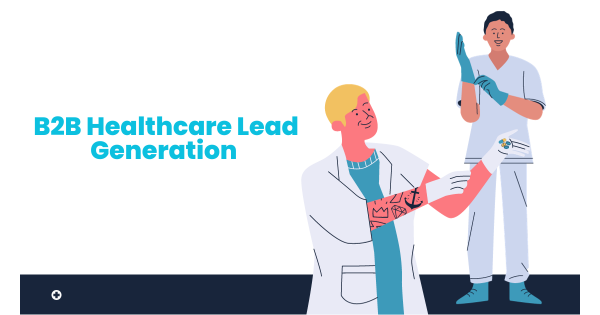What is Predictive AI?
Predictive AI, or predictive artificial intelligence, refers to the application of advanced algorithms and machine learning techniques to analyze data and make predictions about future events, outcomes, or trends. Unlike traditional AI systems that focus on recognizing patterns in existing data, predictive AI goes a step further by using these patterns to forecast what might happen next. This technology is capable of identifying hidden correlations, trends, and insights within large datasets, enabling organizations to anticipate and prepare for various scenarios in advance.
In essence, predictive AI empowers decision-makers across industries to make informed choices, optimize processes, and drive better outcomes based on predictive insights gleaned from data analysis.
Role of Predictive AI in Healthcare Marketing
The integration of predictive artificial intelligence (AI) has emerged as a transformative force, reshaping the way healthcare businesses engage with their target audience and deliver services. Predictive AI, leveraging advanced algorithms and machine learning techniques, offers unparalleled insights into patient behavior, healthcare needs, challenges, preferences, and needs. This dynamic tool not only enables healthcare marketers to anticipate healthcare audience needs and tailor messaging but also empowers them to optimize campaign performance, enhance patient engagement, and drive business growth.
By harnessing the power of predictive AI, healthcare marketers can revolutionize their strategies, delivering personalized, targeted, and impactful marketing initiatives that elevate patient/healthcare audience experiences and outcomes.
Predictive analytics is revolutionizing healthcare marketing strategy in several ways:
- Segmentation and Targeted Marketing
Predictive analytics can segment healthcare audience populations based on demographic information, age, gender, type of healthcare problem, and other relevant factors. By identifying distinct patient segments, healthcare marketers can optimize their messaging to each audience segment and target specific groups with tailored marketing campaigns.
It also analyzes vast amounts of data to identify patterns and trends related to behavior, preferences, and needs. By understanding healthcare seekers’ medical history, online behavior, and engagement with healthcare content, marketers can tailor marketing messages and campaigns to specific patient segments, resulting in more targeted and personalized marketing efforts. Predictive AI enables personalized marketing at scale and creates individualized experiences for each customer. By leveraging the above-mentioned customer data, predictive AI algorithms can deliver targeted messages and recommendations that resonate with each customer’s unique preferences and interests.
- Predictive Modeling for Campaign Success
Healthcare marketers can use predictive modeling techniques to forecast the effectiveness of healthcare marketing campaigns and initiatives. By analyzing historical data and variables such as campaign type, messaging, timing, and channel, predictive models can estimate the likely response rates and outcomes of future campaigns, enabling marketers to optimize their strategies for success.
- Patient/Potential Healthcare Target Audience Acquisition and Retention
Predictive analytics helps healthcare organizations identify individuals who are most likely to become patients or require specific healthcare services. By analyzing historical data and predictive models, marketers can target potential patients with relevant information and services, increasing patient acquisition rates. Additionally, predictive analytics can identify patients at risk of attrition or non-adherence, allowing marketers to implement targeted retention strategies to keep patients engaged and loyal to the healthcare organization.
- Predictive Lead Scoring
Predictive lead scoring is another strategy leveraged by healthcare businesses and marketers that enables them to prioritize leads by predicting their likelihood of converting into customers. By analyzing lead data and behavior, predictive AI models assign lead scores based on factors such as engagement level, demographics, and purchase intent, allowing marketers to focus their efforts on leads with the highest potential value.
- Improved Healthcare Customer engagement
B2C Healthcare marketers from healthcare organizations use predictive analytics to anticipate patient needs and preferences, allowing them to create engaging and relevant content across various channels. By delivering personalized messages, educational resources, and health-related information, marketers can enhance patient engagement and encourage proactive healthcare behaviors, such as scheduling appointments, adhering to treatment plans, and adopting healthier lifestyles. Healthcare businesses can also leverage Predictive AI to optimize their marketing strategies for B2B healthcare campaigns.
- Behavioral Analysis and optimized Marketing Channels
Predictive analytics can analyze B2C/B2B healthcare target audience behavior across various touchpoints, such as website interactions, social media engagement, and response to marketing communications. By understanding healthcare audience preferences and behavior patterns, healthcare marketers can optimize marketing strategies, healthcare content, and channels to better engage their target audience.
Predictive analytics also helps healthcare marketers identify the most effective marketing channels and tactics for reaching and engaging target audiences. By analyzing data on channel performance, patient preferences, and conversion rates, marketers can allocate resources more efficiently and optimize marketing investments to achieve maximum ROI. This may include leveraging digital marketing channels such as social media, email marketing, search engine optimization (SEO), and targeted advertising to reach patients where they are most active and receptive to healthcare-related messages.
- Effective Resource Allocation
Predictive analytics enables healthcare organizations to forecast patient demand for specific services and allocate resources accordingly. By analyzing historical data, patient demographics, and population health trends, healthcare marketers can identify areas of high demand and invest in marketing initiatives to promote relevant services, specialties, or healthcare facilities. This ensures that healthcare resources are allocated effectively to meet the needs of patients and communities while optimizing operational efficiency and revenue generation.
- Customer Lifetime Value Prediction
Predictive AI helps healthcare marketers predict the future value of individual customers in their healthcare business over their entire lifecycle. By analyzing healthcare customer data and behavior, predictive AI models can estimate the potential revenue and profitability associated with each customer, allowing marketers to prioritize resources and tailor marketing strategies accordingly.
- Compliance and Regulatory Adherence
Predictive AI helps healthcare marketers ensure compliance with regulatory requirements and industry standards. By analyzing data and predicting potential compliance risks, marketers can develop marketing strategies that adhere to relevant regulations, safeguard patient privacy, and maintain trust and credibility with patients/ healthcare audiences and regulatory authorities.
- Continuous Improvement
Predictive AI facilitates continuous improvement in healthcare marketing by providing valuable insights and feedback loops. By analyzing campaign performance data and patient feedback, marketers can iteratively refine their strategies, messages, and approaches to better meet patient needs and preferences over time, driving ongoing success and effectiveness in healthcare marketing efforts.
Conclusion
Overall, predictive analytics empowers healthcare marketers to make data-driven decisions, enhance patient engagement, optimize strategies, and improve healthcare outcomes both in B2B and B2C healthcare marketing strategies. By leveraging predictive analytics tools and technologies, healthcare organizations can gain valuable insights into target audience/patient behavior and preferences, driving more effective and efficient marketing efforts that ultimately benefit patients, providers, and healthcare stakeholders.



